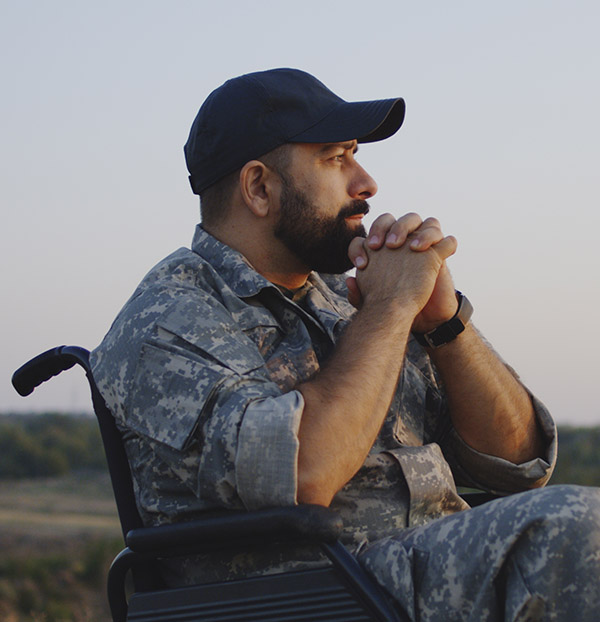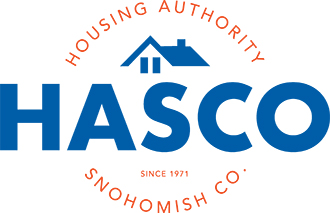Partner Programs
Housing Support Matched to Human Services
HASCO works with specific human service programs to ensure participants have a home while working to achieve personal and financial stability. These Partner Programs serve individuals and families facing a range of challenging circumstances. HASCO sets aside guaranteed monthly rent payments, in the form of vouchers, to cover a portion of housing and utility costs.
Partner Program vouchers are managed separately from HASCO’s Housing Choice (Section 8) Vouchers and Senior and Disabled Program waiting lists.
People enrolled in Partner Programs have the same rights and responsibilities as HASCO Program participants.

Family Unification
The Family Unification Program (FUP) helps families stay together. HASCO provides vouchers to households identified for FUP by the Washington Department of Children, Youth, and Families (DCYF) for one of two reasons.
FUP is a federally funded program through the U.S. Department of Housing and Urban Development (HUD).
Like all Partner Program vouchers, FUP resources are managed separately from HASCO’s Housing Choice (Section 8) Vouchers and Senior and Disabled Program waiting lists.
People enrolled in the Family Unification Program have the same rights and responsibilities as HASCO Program participants.

Foster Youth
Young adults between the ages of 18 and 24 years old can request housing support through Extended Foster Care, a Washington Department of Children, Youth, and Families (DCYF) program. The requirements for joining this program include the following.
HASCO provides housing vouchers to young adults in Extended Foster Care upon request by the Washington Department of Children, Youth, and Families (DCYF).
Like all Partner Program vouchers, resources for Extended Foster Care are managed separately from HASCO’s Housing Choice (Section 8) Vouchers and Senior and Disabled Program waiting lists.
People enrolled in Extended Foster Care have the same rights and responsibilities as HASCO Program participants.

Moving From a Medical Facility
HASCO provides housing support for adults enrolled in Roads to Community Living (RCL), a Washington State Department of Social and Health Services program (DSHS). RCL helps adults arrange services so they can leave a structured medical setting, such as a Skilled Nursing Home or Intermediate Care Facility. Participants must be under the age of 62 and have a certified disability.
HASCO issues housing vouchers to RCL participants when requested by the Snohomish County DSHS office.
Like all Partner Program vouchers, resources for Roads to Community Living are managed separately from HASCO’s Housing Choice (Section 8) Voucher and Senior and Disabled Program waiting lists.

Other Partner Programs
Homeless Families with Children (Service-enriched Vouchers)
HASCO provides rent support and services to families who have no place to call home. Our Service-Enriched Project-based Voucher (SE PBV) Program partners with families and social services agencies, helping families achieve stability and financial independence.
HASCO provides vouchers and a place to live in an apartment reserved for program participants. Our partner organizations provide an action plan and additional social services, such as life skills and job training programs, behavioral health services and ongoing support.
The agencies that serve families in the SE PBV Program are: Catholic Community Services, Housing Hope, The YWCA of Seattle-King County-Snohomish County and Volunteers of America.
Like all Partner Program vouchers, resources for the Services-Enriched Project-based Vouchers are managed separately from HASCO’s Housing Choice (Section 8) Vouchers and Senior and Disabled Program waiting lists.
Families typically qualify for Housing Choice (Section 8) Vouchers after completing their action plans.
People enrolled in this program have the same rights and responsibilities as HASCO Program participants.
Project-based Vouchers and Rural Development Housing
HASCO reserves apartment homes we own for families, people with disabilities and senior citizens who cannot afford rent for any place in the community. People who meet the stringent qualifications for these programs, set by the U.S Department of Housing and Urban Development (HUD), pay 30% of their household’s income for rent; HASCO vouchers cover the rest.
Like all Partner Program vouchers, resources for Project-based Vouchers and Rural Development Housing are managed separately from HASCO’s Housing Choice (Section 8) Vouchers waiting list.

Veterans
The Veterans Affairs Supportive Housing (VASH) program serves homeless veterans and their families. Upon request of the VA, HASCO provides housing vouchers that provide partial payment for any Snohomish County rental that meets our health and safety guidelines.
Veterans enrolled in VASH receive additional services through our local VA office, the U.S. Department of Veterans Affairs Seattle Division. The vouchers HASCO provides are funded by the U.S. Department of Housing and Urban Development (HUD).
Like all Partner Program vouchers, VASH resources are managed separately from HASCO’s Housing Choice (Section 8) Vouchers and Senior and Disabled Program waiting lists.
Find out how to get VASH housing.
Call your local VA representative to request a consult for referral to VASH.

Better Futures. Stronger Communities.
Read about people who used their stable home as the foundation for overcoming extraordinary life challenges.
Growing Strong as a Family
Jason took the first steps on his own to get clean and sober then got the support he needed to build a new, productive life. He now has a full-time career and custody of his daughter.
Injured in the Line of Duty
While performing as a volunteer motorcycle officer for the Washington State motorcade, a devastating accident left Miles unable to return to his regular job. Their savings and his wife’s income were not enough to cover house payments and medical expenses. The couple became homeless. The VA stepped in and helped the couple secure an apartment.
Gaining Strength for a New Job
Charles entered the hospital after battling illness on his own for six years. Unable to work during that time, his savings were gone. He left the hospital with housing support for a stable home. Now in better health, Charles is looking for employment again.
